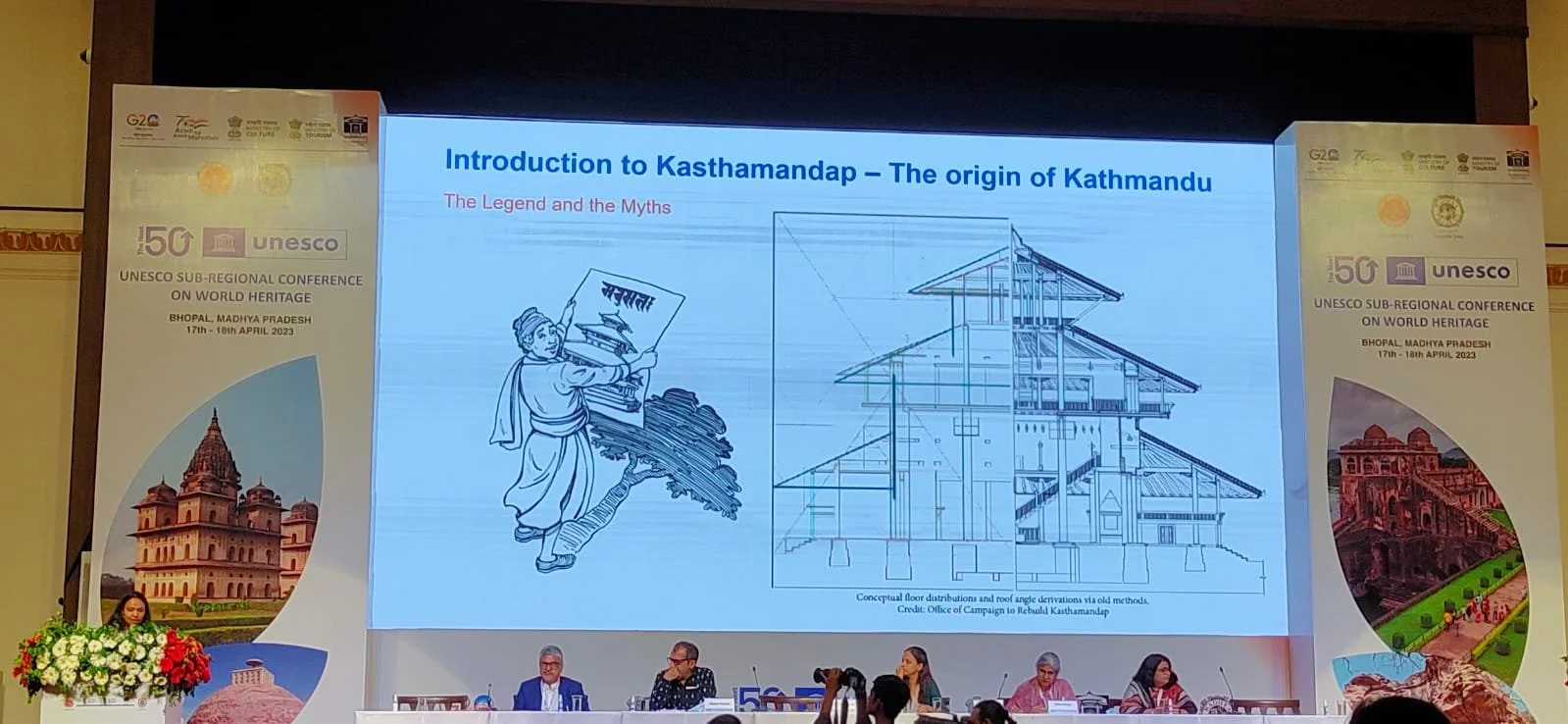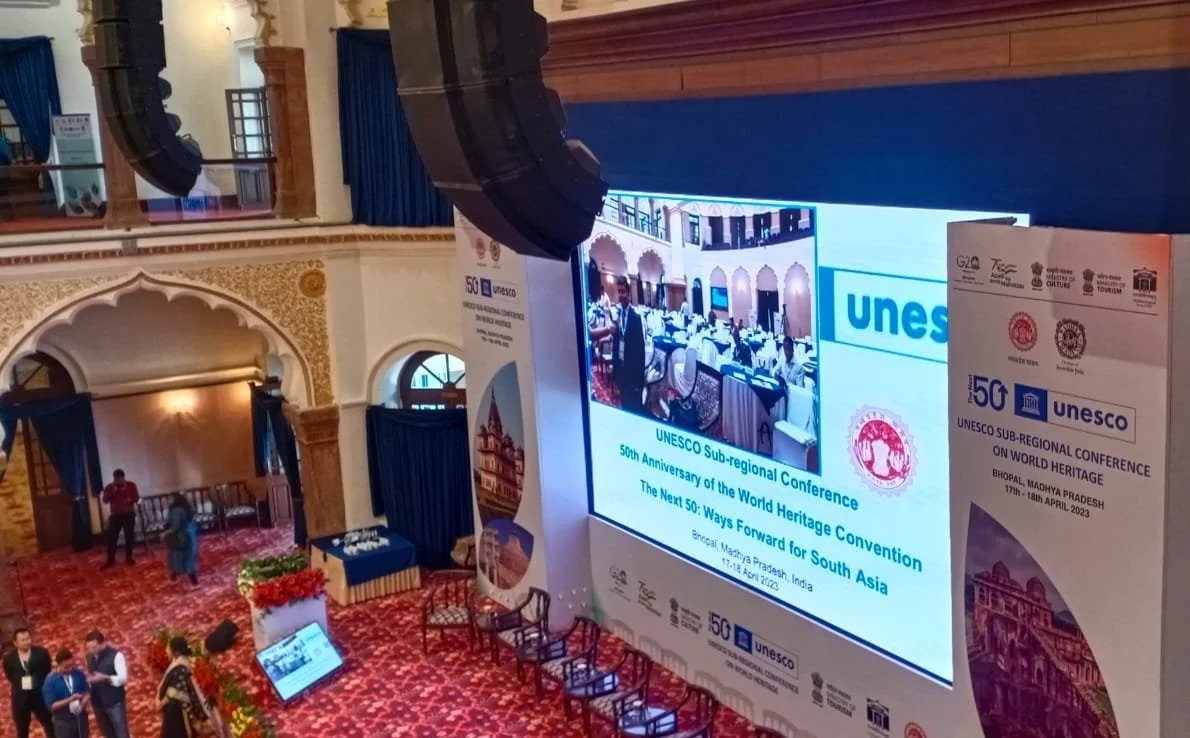Presentation for UNESCO’s Sub-regional Conference on the 50th Anniversary of World Heritage Convention (Bhopal)
Speaker: Binita Magaiya
On April 17–18, Heritage as Placemaking research assistant Binita Magaiya attended this conference and presented on her work at the Kasthamandap site in Kathmandu. A description of her presentation and the conference itself can be found below.
Binita Magaiya: “The 50th Anniversary of the UNESCO World Heritage Convention was celebrated on November 2022. To mark the 50th anniversary of the World Heritage Convention, the UNESCO New Delhi Multisectoral Regional Office, jointly with the State Government of Madhya Pradesh of India, organized a Sub-Regional Conference on World Heritage: “The Next 50: Ways Forward for South Asia World Heritage” on 17–18 April in Bhopal, Madya Pradesh, India.
I presented at this conference under the theme “World Heritage and Sustainable Development for Local Community.” The presentation centered on the site of Kasthamandap in Kathmandu as an example of a community initiative and reconstruction process. The invitation to present on Kasthamandap came from the UNESCO New Delhi office, supported by UNESCO Nepal office. The presentation focused on the community building process for this monument, which is part of a World Heritage Site, and focused on diverse aspects of its reconstruction, from community campaigning, activism, and volunteering, to the actual, physical rebuilding process. I highlighted the factors that affected the reconstruction of a national monument, as well as how this builds a community from various walks of life. Furthermore, the authenticity of the reconstruction associated with the intangible practice was the central idea of my presentation. In presenting on Kasthamandap, I was interested in raising the key questions of a monument rebuilding, specifically regarding the technical person adopted by the community as the “Sacred Secret Keeper,” responsible for initiations into various rituals. Additionally, the levels of community involvement from scholars, researchers, technical experts, and politicians were all highlighted.
About the UNESCO Sub-Regional Conference:
The past 50 years experienced numerous World Heritage Sites enlisted on the criteria of their supposed Outstanding Universal Value (OUV). Particularly at the beginning, such sites were selected based upon their tangible attributes and how their respective nation states had presented them as part of their identities. However, over past few decades, the emphasis shifted from physical attributes of the sites to intangible heritage and cultural practices entangled with the site, emphasizing qualities that offered a clear, unique understanding of human evolution. Today, enlisted World Heritage Sites now encompass multiple quantifiers, including those involving the communities and their levels of participation and continued practices.
After the opening ceremony, there were two plenary sessions in the first half, with the theme “50 years of the World Heritage Convention: Achievements and Challenges for the Future.” Ms. Junhi Han, Chief of Culture, UNESCO, New Delhi, presented a talk titled “50 years of the World Heritage Convention: Towards an Inclusive, People-centered and Holistic Approach: Evolution of the Concept of Cultural Heritage,” in which she further stated UNESCO’s intention to focus on heritage sites with community-driven initiatives to safeguard both UNESCO’s world heritage property and the sites on the tentative list. Representatives from the SAARC Countries also shared their experiences of “50 years of the Implementation of the World Heritage Convention in South Asia and Future Challenges” as a part of the second panel of the day. After the two main plenary presentations, the side events under the themes “Heritage based Academics Projects: Importance of Research,” “Role of Civil Societies,” and “Diverse Angles of Heritage.”
The last panel of the first day was themed “World Heritage and Sustainable Tourism.” The second day started with a special session on UNESCO Creative Cities Network by Ms. Junhi Han. The three other panels for the day were themed “World Heritage and Cultural Landscapes,” “Historic Cities and Historic Urban Landscapes,” and “World Heritage and Climate Change and Intangible Cultural Heritage.” The two-day conference ended with the adoption of the Bhopal Vision statement.



